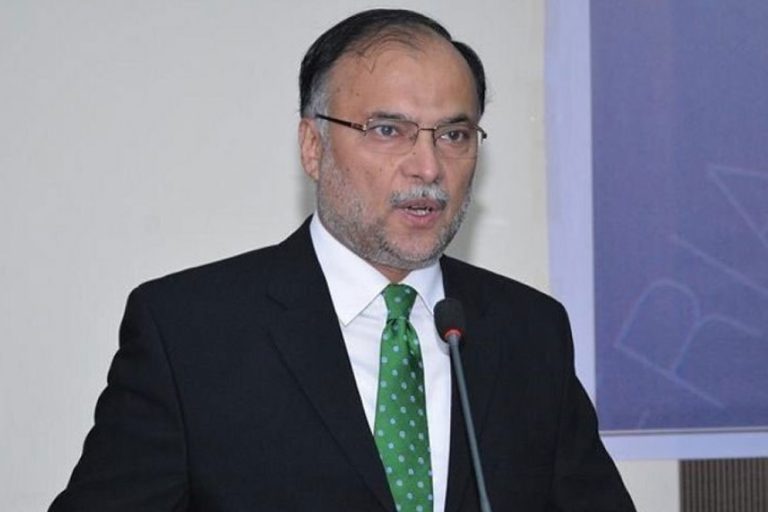Staff Report
ISLAMABAD: Federal Minister for Planning, Development and Special Initiatives Prof Ahsan Iqbal Wednesday chaired a mid-term review meeting on Sustainable Development Goal (SDG) 2 which focused on eliminating hunger, achieving food security, improving nutrition, and promoting sustainable agriculture.
During the meeting, the minister delivered a speech to various stakeholders and development partners, emphasizing the significance of SDG 2 and outlining the government’s initiatives and plans to address the challenges in achieving the goal, said a press release issued here.
He emphasized that SDG 2 was not merely international development agendas, but it was the development agenda of Pakistan as it aimed to provide minimum facilities and rights to people for a quality life. Ending poverty, hunger, and unemployment were goals that did not require international agreements but necessitated concerted efforts from within each country, he added.
Highlighting Pakistan’s commitment to sustainable development, Minister Iqbal mentioned that Pakistan became the first country in the world to implement Sustainable Development Goals. He stressed the importance of partnership in sustainable development and expressed the need for collaboration among the government, private sector, and civil society.
He emphasized that sustainable development goals could not be achieved by the government alone, and active participation from all stakeholders was required. The minister also drew attention to the challenges posed by climate change, specifically its impact on food security.
He mentioned the devastating climate disaster witnessed in Pakistan, particularly in the most vulnerable regions of Sindh and Balochistan, leading to a severe food and nutrition crisis.
In response, the government has initiated a new program, “Green Revolution 2.0,” which aims to leverage advancements in biotechnology, digital technology, drone technology, and satellite technology to revolutionize agriculture in Pakistan.
The implementation of these technologies is expected to enhance productivity and transform Pakistan into a self-sufficient and potentially exporting country. Furthermore, the minister highlighted the importance of equity and empowerment in society to eliminate hunger and provide equal opportunities for development.
He emphasized the government’s commitment to the “leaving no one behind” principle, ensuring that no region, group, or individual was excluded from the development process. Addressing the issue of food waste, the minister urged attention to food patterns and waste reduction.
He emphasized the need to eliminate waste, improve storage methods, and ensure that no one in society went hungry or lacked proper nutrition. Ahsan Iqbal underscored the adverse effects of hunger and malnutrition on the physical and mental capacities of individuals, leading to exclusion from development opportunities.
In conclusion, the minister acknowledged the challenging task of eradicating poverty and hunger by the designated target year and highlighted the current economic crisis faced by developing countries, including Pakistan. He urged international organizations to support vulnerable countries like Pakistan in dealing with climate change and providing basic facilities to their people.
The minister Iqbal expressed gratitude to all participants and assured them that their recommendations and suggestions would be taken into account and implemented with utmost dedication. He reiterated that it was a national challenge to free people from hunger, poverty, ignorance, and disease, and the government remained committed to achieving the goals.


